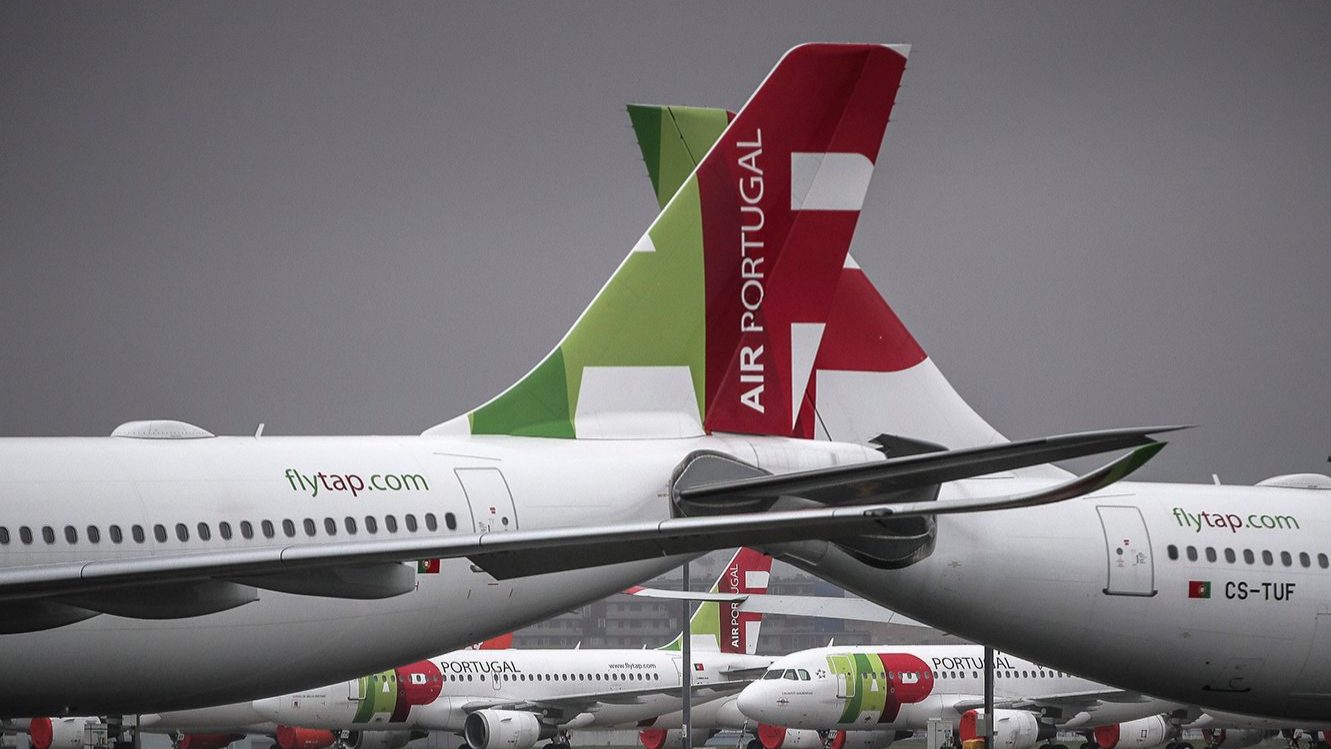Travel association hails EU decision to approve TAP rescue plan
The European Union executive said last week that it had approved TAP's restructuring plan and state aid of €2.55 billion, requiring the airline to provide up to 18 slots per day at Lisbon airport.
The Portuguese Association of Travel and Tourism Agencies (APAVT) has welcomed the European Commission’s decision to approve a plan to rescue TAP, Portugal’s national flag carrier, arguing that the country “needs” the airline while stressing that “nothing has been achieved” as it now has to “walk the path” laid out for it.
“It was good news … that gives TAP time and TAP needs time to tread a path and to set a course and the country needs TAP,” the president of APAVT, Pedro Costa Ferreira, told Lusa, recalling that this position of the association is currently known and, “to some extent, out of fashion, difficult to sustain, not very sexy.”
APAVT “knows very well what tourism represents for the Portuguese economy,” for growth and “what is necessary for the Portuguese economy to grow,” he added. “I also know very well the need and dependence that tourism has on TAP itself.”
The European Union executive said last week that it had approved TAP’s restructuring plan and state aid of €2.55 billion, requiring the airline to provide up to 18 slots per day at Lisbon airport.
While “nothing has been achieved, nothing has been done,” Costa Ferreira said, “the news was good” as it allows “TAP’s managers, TAP’s employees and the tourism stakeholders in general to work together to change the norm, to put TAP, once again, at the service of the Portuguese economy and, for once, also put TAP on the path to positive results.”
This “good news”, he added, is “above all for TAP, for Portuguese tourism and for the national economy” but also “because it is not insignificant”, “for the workers that are at TAP, which is a significant number.”
As to whether he agrees with Portugal’s minister for infrastructure, Pedro Nuno Santos, that the authorisation from the European Commission for the TAP fleet to swell to 99 aircraft by the end of the implementation of the restructuring plan, shows that the company will not be a “little TAP” – as the minister put it – Pedro Costa Ferreira said: “I agree that it has been given the tools to not be a ‘little TAP’, it needs to be successful.”
Costa Ferreira said that “it could hardly be any better” and added that the best thing would be “for TAP to take this news and turn it into positive results and a long-term path that is coherent and solid.”
On 21 December, the minister said that the 99 planes was the figure that the government had proposed in its initial draft of the restructuring plan.
“Contrary to what you might think, in Portugal you are not going to get a ‘little TAP’,” Costa Ferreira agreed. “The point-to-point in Lisbon is sustained by the hub [distribution platform for flights between airports]. When people say that TAP doesn’t serve tourism, because the Algarve doesn’t have TAP, they are committing two gross errors: the first, very gross, is to think that tourism in Portugal ‘today for today’ is the Algarve.
“The Algarve is an excellent tourist destination, but tourism in Portugal is much more than the Algarve and, above all, the future growth of tourism in Portugal will come from many places and very little from the Algarve where occupancy rates are very close to 100% in the high season,” he went on. “Therefore, the fact that the Algarve does not have TAP has nothing to do with the fact that TAP does not serve tourism in Portugal. This is the first point.”
The second point, in APAVT’s view, is that “what exists in terms of TAP’s position in the Algarve is exactly what TAP’s position in Lisbon would be” if there were no hub.
“TAP is not in the Algarve because it doesn’t want to be in the Algarve,” he explained. “TAP is not in the Algarve because it doesn’t have a hub in the Algarve and cannot compete point-to-point with low-cost airlines, which it can in Lisbon. Therefore, what we would have is a total abandonment of long-haul routes, in our understanding, and with that what would suffer would be the interior of the country, the Alentejo, the centre of Portugal, the Douro, longer stays, richer tourist markets and those with a greater capacity for tourist spending.”
The approved plan also includes “a package of measures to streamline TAP’s operations and reduce costs” – namely the division of activities between, on the one hand, TAP Air Portugal and its regional unit Portugália, which is to be restructured, and on the other hand the disposal of “non-core assets” such as subsidiaries in activities such as maintenance (in Brazil) and catering and ground handling (provided by TAP subsidiary Groundforce).
The government submitted its restructuring plan for TAP to the European Commission a year ago, and in the meantime has implemented measures that include a reduction in the workforce.

